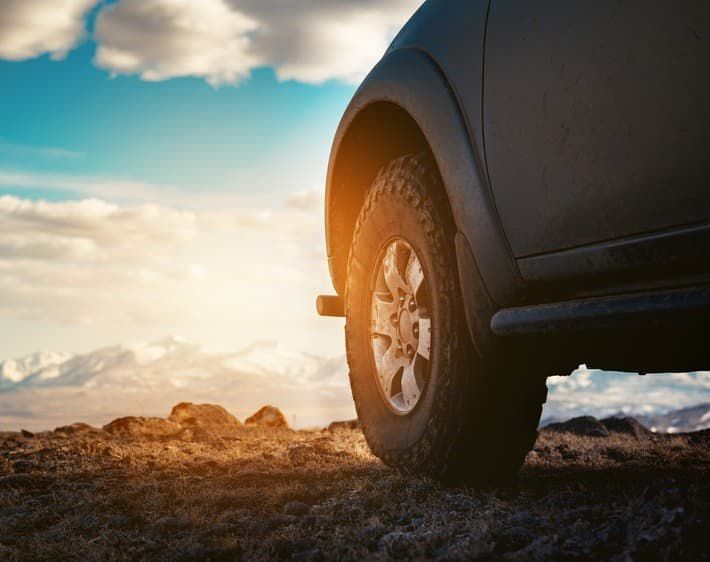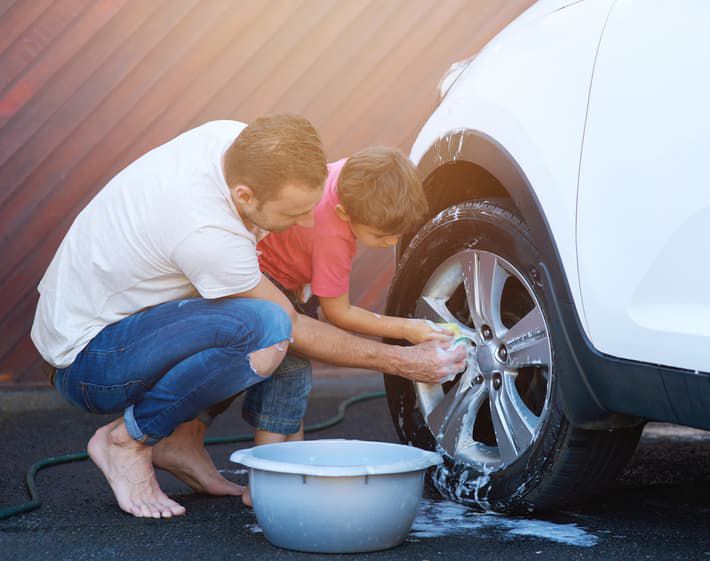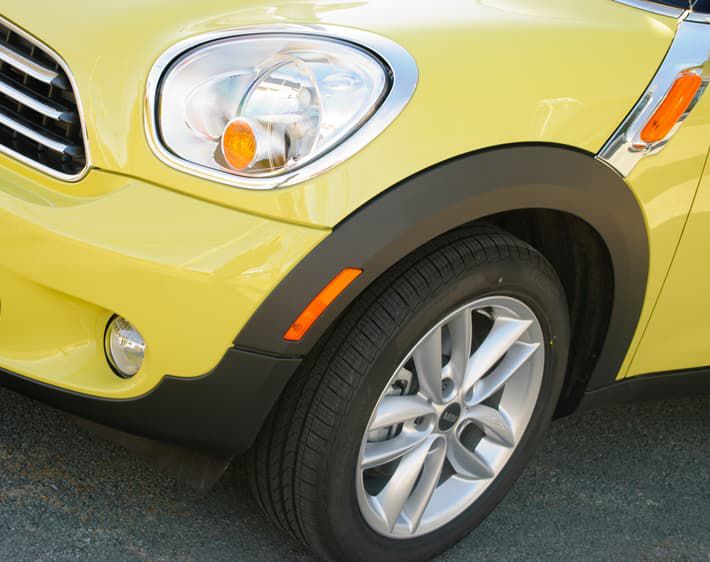When it comes to buying tires for your SUV or truck, you may think bigger is better — like 20-inch tires vs. 18-inch tires for instance. But when trying to decide between 18 or 20-inch tires, there's a lot more to it than simply choosing a larger tire! We break down 18-inch tires vs. 20-inch tires to help you make the best decision for your vehicle.
Plus-Sizing Your Wheels
Plus-sizing happens when drivers opt for larger diameter wheels with a shorter sidewall over their original equipment wheels. However, plus-sizing does not impact the outer diameter of the tire, so the speedometer and other vehicle hardware continue to work as intended.
Keep in mind that when we say "tire," we are talking about the rubber that meets the road. When we say "wheel," we are referring to the steel or aluminum alloy rim that sits inside the tire and is connected to the hub and axle.
According to Consumer Reports, plus-sizing your tires might lead to an improvement in performance, specifically in handling and cornering. The idea is that the smaller the tire sidewall, the more solid the ride.
It's possible to "plus one," "plus two," or "plus three." "Plus one" means you increase your wheel's diameter and the width of the tire an inch larger than the original equipment wheel. "Plus two" would add two inches to the tire width and wheel diameter, and so on. If you're looking at going from 18-inch wheels to 20-inch, you'd be looking at "plus two" sizing.
It's important to note that making any change to your wheel and tire size that's not in line with manufacturer recommendations could impact the speedometer, ADAS features, and other crucial aspects of your vehicle.
Pros of 20-Inch Wheels and Tires
While up-sizing is typically not a recommended practice, plus-sizing from 18- to 20-inch tires may be okay depending on things like your vehicle's make and model, the depth of the wheel well, and more. The key is to stick to the guidance provided in your owner’s manual! Here are a few pros 20-inch wheels may offer.
1. They can be visually appealing.
Go big and get noticed! Typically, 20-inch tires have less sidewall and show more of the wheel, which some drivers find to be more aesthetically pleasing by giving the vehicle a more aggressive look.
2. They can provide additional control.
Since 20-inch tires typically have a smaller sidewall, they tend to retain relatively more rigidity on the road. The additional rigidity may give drivers of certain vehicles slightly better handling when cornering.
Cons of 20-Inch Wheels and Tires
1. They may decrease acceleration.
Because of the bigger size in both diameter and weight with 20-inch tires, your engine may have to work harder when accelerating. However, this difference can be quite minimal and difficult to notice.
2. They may provide less comfort.
Due to a decreased sidewall, 20-inch tires can increase the discomfort you feel when going over potholes, speed bumps, gravel roads, and other road hazards. If you’re into off-roading, 20-inch tires might not be the best choice.
Pros of 18-Inch Wheels and Tires
1. They can provide a more comfortable ride.
Because 18-inch tires have a larger sidewall, they are typically more flexible than ones with a smaller sidewall. Your tires act as shock absorbers and can provide a greater cushion when going over bumps and potholes.
2. They can be easier on your engine.
Since 18-inch tires weigh less, your engine may not have to work as hard to help your car speed up. They may also help decrease wear on the suspension and brake systems.
Cons of 18-Inch Wheels and Tires
1. They may not be as aesthetically appealing.
Smaller tires might not look as powerful or aggressive as larger tires. Some drivers see smaller tires as more functional than fashionable, especially when equipped on a larger truck or SUV.
How to Choose the Right Wheels and Tires for Your Vehicle
While 18-inch tires might provide a more comfortable ride, 20-inches may handle better. But which one do you choose? And how do you know if your vehicle can handle bigger or smaller tires?
First, consult your owner's manual. Your vehicle manufacturer knows best when it comes to tire size. They designed and engineered your car, truck, or SUV with a specific one in mind!
As Car and Driver notes, "Know your car and avoid making dire tire mistakes to ensure your wheels are safe and are giving your vehicle the best levels of traction possible."
The tire experts at Firestone Complete Auto Care can also help. Compare 18- and 20-inch tires online and talk to a tire pro at your local Firestone Complete Auto Care about choosing the right size tire. We'll help you pick the right option for your vehicle and needs so you can drive with confidence.



